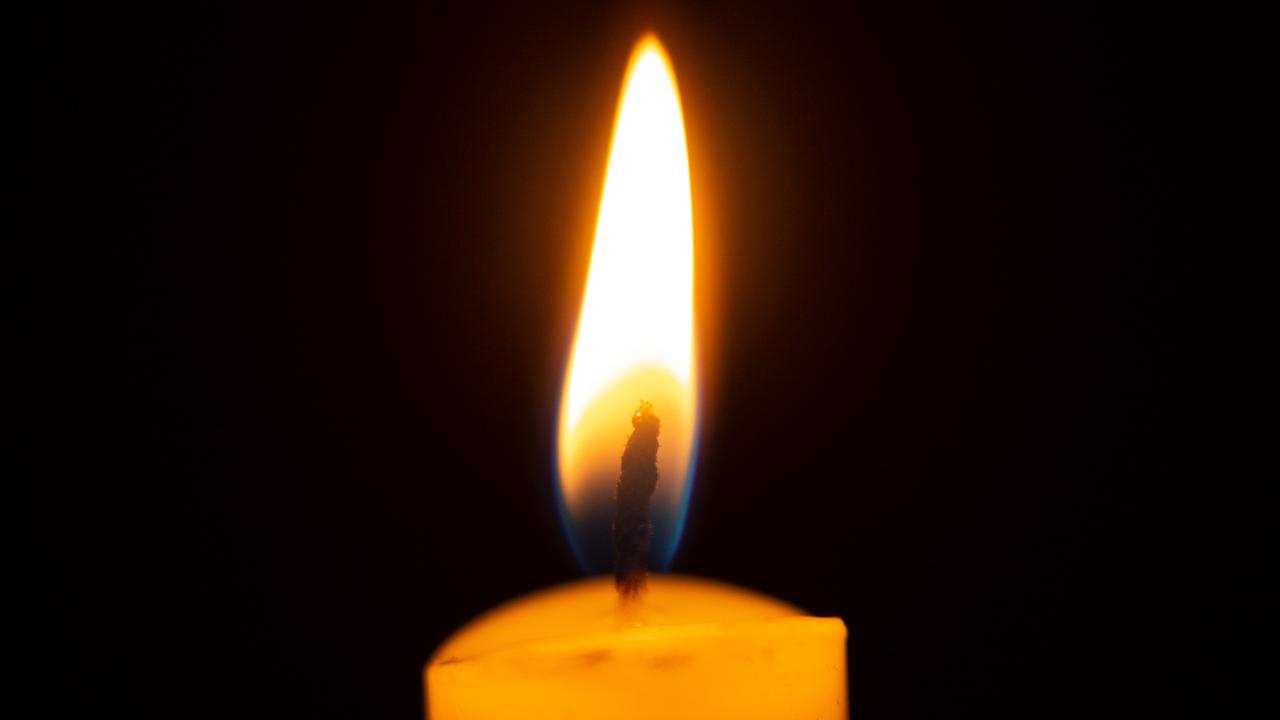The assault on the village of Wiancourt, from the WWI diary of Queensland’s Private Francis Joseph Campbell Brewer
THIS is the unique WWI diary of Private Frank Brewer, and his account of the assault on the village of Wiancourt amid explosions, gas and the “avalanche of death”. 100 Years of Untold ANZAC Stories
ANZAC Centenary
Don't miss out on the headlines from ANZAC Centenary. Followed categories will be added to My News.
#########
Were told our objective was the village of Wiancourt. The enemy must have suspected our presence and preparations as he shelled us with terrific energy; but it was too dark to see how many were being wounded. At 4am 3rd October, two hours before zero, a storm of whiz bangs and gas shells came down upon us; and the gas wrought great havoc among us.
A shell burst but one yard in front of me; being prone on the earth the stuff missed me. Was shaken up a bit, and my ears were stinging and ringing. In the face of this awful trial, the Aussies remained perfectly cool, and smoked their cigarettes with the burning ends concealed in holes, or behind someone’s back. The boys, the middle-aged men, and the old buffers stood their ground before this avalanche of death with a steadiness that could not have been surpassed by the best disciplined troops in the world. Time wore on, and at last came the dawn of the greatest day of my life, Thursday, 3rd October, 1918. The zero hour, 6 o’clock was close at hand. Waiting for that hour is the biggest moment of the war, to those directly interested in the impending attack.
Exactly at 6am, a solitary gun boomed the signal for the action to begin. One minute later there was a terrific crash; thousands of cannon were discharging their contents on the enemy lines.

The plan of attack was, the first wave should travel 1000 yards across ground mined, wired, and trenched, and then secure the ridge before Wiancourt; the second wave had to capture the village itself. The troops had to wait on the tape six minutes to give the barrage a fair start. Then off they went, men and shells together, and above them, those “eyes of the Army”, the aeroplanes.
With flashing eyes and trembling limbs, the boys of the 20th cried: “The old 19th is off”. Away through the grey dawn moved those dauntless high-spirited men of the 17th and 19th with perfect discipline. The scene never shall leave my memory, the scene in which their shadowy forms marched through the smoke of battle. The spectacle was magnificent, filled us, who were to follow them, with a spirit of elation. Now it was our turn.
We advanced with steady step in platoons, separated and arranged in single file; but the boys before us were going forward in extended order. With a most majestic sweep, the grand barrage danced before us as a mighty whirlwind sweeping down to avenge our dead, and to scatter our foes. Behind us thousands of guns were barking incessantly, before us the shells which they cast forth, were whistling, hissing, screaming, crashing and throwing up showers of dirt, smoke and iron, away in the distant ridges the 12 and 15 inch shells operated like earthquakes. The whole battlefield now was a mass of smoke and flying iron. The German artillery quickly replied and laid down a heavy barrage behind us, and the enemy machine guns spat viciously.
We were now in close contact with the enemy, and our Lewis gunners replied, severely spraying the potholes where enemy machine guns were posted and operated. The bullets swished and hissed about for Fritz swept the field with many of these deadly weapons.
Our men were falling now; some already had been killed. Again we pressed on with the 19th still moving, bombing and bayoneting its way forward with fatal precision. Snipers next took a hand in the fray, and succeeded in knocking over some more of our fellows. Next we encountered the first row of a series of immense barbed wire entanglements – bands of closely-woven wire 10 feet thick.
Therefore, we were held up, and had to rush into shell holes for cover. Five times while in one of these holes a sniper fired at my head, and five times he missed. Several of the bullets knocked the dirt into my face, and a lump of earth, so disturbed, blackened the eye of a chap lying next to me in the same hole.

Suddenly a tank began to rattle in our rear. Up it waddled through the smoke, and bore down on the bands of wire which it smashed as if the structures had been a mass of cobwebs. Plonk! Plonk! Came a couple of enemy shells and the tank was put out of action. Almost at the same instant, a shell struck one of our aeroplanes, scattering its parts, as a sportsman gunshot would disturb the feathers of a bird hit on the wing. Game to the last, the pilot made a jump from his machine. He got clear, but the wreckage fell on him, and, I believe, he was killed.
By this time we had got through the gap in the wire and were right in among the Germans, firing point blank and bombing machine gun posts. Germans came popping out of holes like rabbits, and as thick as rabbits. With hands up they called for mercy. Sometimes they got it, and sometimes they did not. As they rose out of their holes like hobgoblins rise from under the stage in a pantomime, these terrified Huns appeared as if out of blocks of wood. In grey great coats, which almost concealed their ugly trench boots with their close fitting shrapnel helmets, fantastically camouflaged, and blowing like grampuses, they seemed the strangest and most frightened creatures in the world; they shivered and screamed for mercy in the wan light of the morning.

One big fellow came racing to me or rather hopping in the style of a kangaroo, to surrender. There was not an ounce of fight in him, and his big fierce moustache wagged about as if it were on elastic. His broad features were distorted with fear; he gave himself up with all the actions of a madman. A new feature in the strife now became apparent – the exploding of mines. Along the ridge at which we were advancing vast caverns opened in the earth and spat forth volumes of sparks and white smoke. The whole hillside was bursting open in this way, rocking the earth beneath our feet. The glory and the terror; the overpowering thunder of the massed artillery of the Combatants; the forest of flashing fire, mingling with the dense stinking smoke; the dauntless aeroplanes that rode forward on the edge of barrage; and the unbreakable line of redoubtable Aussies; moving ever onwards and sweeping the enemy before it in confusion, filled me with a strange and wild enthusiasm so that the grand panorama of victorious achievement reeled before my eyes as a dream, not quite an earthly dream, but a dream in which the reality and unreality mingled in an unearthly manner, making a strange scene of this unrestrained lunacy of human beings, bent on the destruction of each other.
The first wave gained its objective, and the 18th and 20th Battalions then opened an assault on the village but were repulsed. Later reinforcements came up, and by 6 o’clock PM our troops, I afterwards learned, were holding all positions gained in the battle (it is now referred to as “the Battle of Beaurevoir”) and the Germans were retreating towards Montbrehain. I took half a dozen prisoners, and in “Souveniring” them, I found that we had been opposed by the 222 Infantry Division. In this affair I got slightly wounded in the foot. The pain was very keen, but I did not fall out. I stuck with the boys as long as I could. When I got through the second band of barbed wire I could walk no farther, and had to crawl into a shell hole for shelter.
Shortly afterwards I was joined by one of my comrades, Private P. Begbie. We stayed together for some time, and then decided to struggle out, which we found to be not an easy task; for behind us was falling the German barrage, and there were still many snipers operating from holes that had not yet been “mopped up”. Assisted by several German prisoners, wWe limped back to Estrées. Dead, and helpless wounded lay about us. Medical officers – may their work be ever remembered! – were working in trenches that had been for hours under the German barrage dressing the wounded, prisoners as well, and then evacuating them.

Stretcher bearers came wandering over the field, and columns of prisoners could be seen concentrating on Estrées. I went down to the C.C.S. in a G.S. wagon, and saw in the daylight that road of horrors by which we made our way into the line on the night of 1st October. Arrived at C.C.S. this evening (3rd October) and left there by train at midnight for Rouen.
Conveyed by ambulance to an Australian General Hospital on reaching Rouen next morning (4th October) was put to bed. This morning the ward nurse informed me I was “marked for Blighty”. Left Rouen this afternoon in an Ambulance train, which steamed into Le Havre at dusk, and there boarded an American Hospital ship. She sailed at midnight for Southampton.
GALLERY: The pictures that bring to life 100 Years of Untold Stories
Read more ANZAC stories - 100 Years of Untold Stories
GALLERY: The pictures that bring to life 100 Years of Untold Stories


